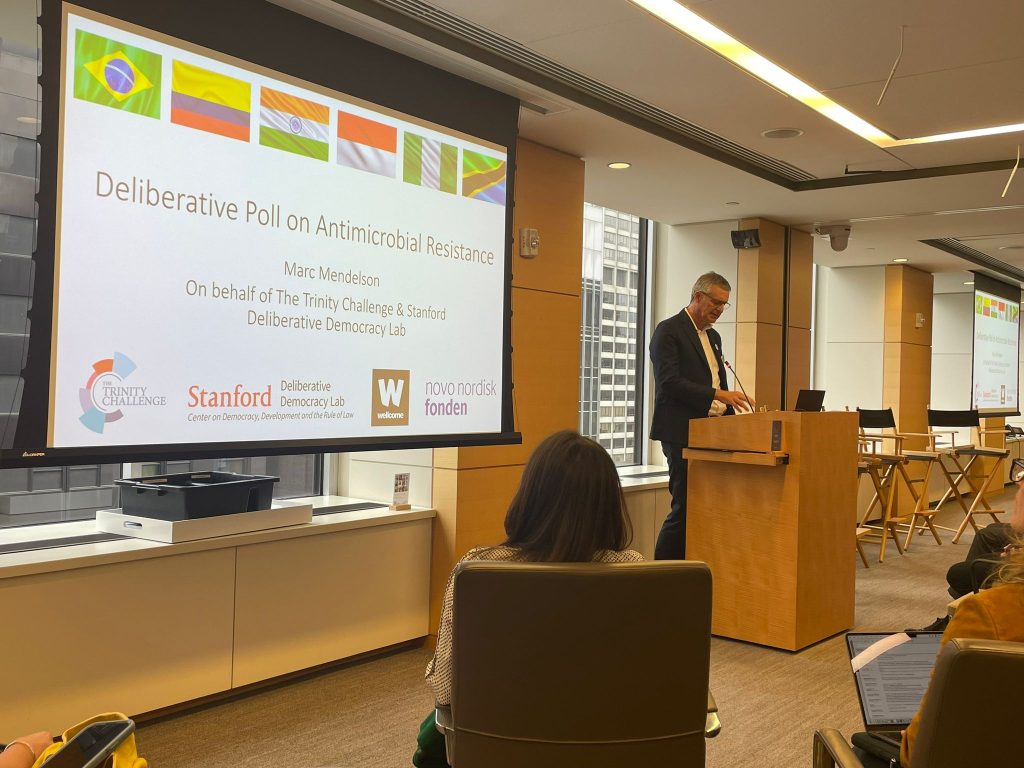10 October 2024
Reflections on UNGA 2024

It was a privilege to represent TTC at side meetings during the week marking the second High-Level Meeting on Antimicrobial Resistance (AMR). Our Chair, Dame Sally Davies, was central to many of the panel discussions in her capacity as the UK Special Envoy on AMR.
The side meetings afforded an opportunity to meet with our networks and the supporters of TTC, who have been instrumental in its success since inception in 2020. We were delighted to have the opportunity to present the first results from our Deliberative Polling collaboration with Professor James Fishkin and Dr Alice Siu at Stanford University Center for Deliberative Democracy Lab at the meeting on Improving global AMR awareness and action through innovative education and public engagement, hosted by the Fleming Initiative, Wellcome Trust, and CAMO-Net.
Highlights of the week included the Gala Performance of Lifeline – the musical of the discovery of penicillin by Sir Alexander Fleming, which enjoyed a month-long run off Broadway – panels on disruptive innovation in AMR, the importance of partnerships as a way forward, the role of diagnostics, and the importance of the patient and public voice in furthering our aims for AMR, exemplified at the event at the Danish Consulate General co hosted with our partner Novo Nordisk Foundation, and Health Care Denmark on the eve of High Level Meeting itself.
We welcome the political declaration approved by 193 countries on 26th September 2024. It contains many commitments that will further our ability to mitigate AMR, including the rapid formation of an independent scientific body to inform policy makers, a heavy emphasis on infection prevention across human and animal health, funding of national action plans, a range of commitments towards improving the research and development landscape, and a solid target to reduce global AMR-associated deaths by 10% from the 2019 baseline by 2030.
The commitments that were made within the political declaration are an important step in having targets for national action, but bringing about the change needed will take work from all of us, and requires a community-led approach from the grass roots as well as a top-down approach from national decision-makers, including sufficient funding.
The work of The Trinity Challenge on Antimicrobial Resistance has been to find innovative ways to gather data and to provide solutions to people working in sectors most closely-linked to mitigating AMR: healthcare workers (including informal workers) and those working in agri-food sectors.
Our youth focused work has also sought to galvanise a movement on AMR that includes the younger generations; the leaders of the future, and our youth campaigners collectively decided to focus their attention on Water, Sanitation and Hygiene (WASH) – the forefront of AMR prevention.
We at the Trinity Challenge, welcome the political declaration and pledge to work with our partners and collaborators to help ensure its ambition is realised through considered action.
Professor Marc Mendelson
Director, The Trinity Challenge
Louise Gough
Chief Operating Officer
